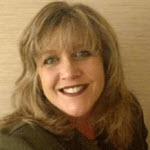How do you say eosinophil? It’s a question we hear often, especially during National Eosinophil Awareness Week. The answer is: ee–oh–sin–oh–fil.
Eosinophils are a type of white blood cell that play an important part of our immune system, helping us to fight off certain types of infections, such as parasites. Many different problems can cause high numbers of eosinophils in the blood including allergies (food and environmental), certain infections caused by parasites, eosinophil-associated gastrointestinal disorders, and other problems. When a person has elevated numbers of eosinophils in their digestive system, tissues, organs, and/or bloodstream, without a known cause, he or she may have an eosinophil-associated disease (EAD).
Eosinophilic gastrointestinal disorders (EGIDs) are distinct diseases affecting areas of the gastrointestinal tract: the esophagus, stomach, and small and/or large intestine. EGIDs are often driven by food triggers. The diagnosis depends on where the eosinophils are found:
- Eosinophilic Cystitis: bladder
- Eosinophilic Fasciitis: connective tissue
- Eosinophilic Gastrointestinal Disorders:
- Eosinophilic Colitis: large intestine
- Eosinophilic Esophagitis: esophagus
- Eosinophilic Gastritis: stomach
- Eosinophilic Gastroenteritis: stomach and small intestine
- Eosinophilic Granulomatosis with Polyangitis, aka Churg-Strauss Syndrome: lungs, sinuses, heart, various organ systems
- Eosinophilic Pneumonia: lungs
- Hypereosinophilic Syndrome: blood and any organ
he most common of these diseases are eosinophilic gastrointestinal disorders (EGIDs), affecting the gastrointestinal tract. In patients with EGIDs, particularly eosinophilic esophagitis, food proteins often trigger eosinophils to release toxins into the affected area, causing inflammation and damage. Treatments include steroid treatments or restricted diets. Some patients may have a severely restricted diet, and nutrition is provided in whole or in part by an elemental formula, such as Neocate®.
Symptoms of EGIDs may vary from one person to the next, and may differ depending on age. Infants and toddlers often refuse their food or have trouble growing properly. School-age children may have recurring abdominal pain, trouble swallowing, or vomiting. Teens and adults most often have difficulty swallowing or painful swallowing. Their esophagus may narrow and cause food to become stuck (impaction), causing a medical emergency.
Currently, there is no FDA-approved therapy to treat EGIDs. Symptoms are controlled by dietary restrictions and/or swallowed steroids. Some patients have a severely restricted diet, or must avoid the vast majority of foods and instead receive all of their nutrition as an elemental diet (that is, amino acid-based nutrition), such as Neocate. Some patients are able to drink formula, while others need a feeding tube.
Join Us in Celebration of National Eosinophil Awareness Week!
Every year during the third week of May, our patient community comes together in honor and celebration of National Eosinophil Awareness Week (NEAW) to ramp up efforts around the globe to raise awareness of EADs. Since being officially recognized by Congress in 2007, this special week has helped bring about a greater understanding of these rare, chronic, and emerging diseases for which there is no cure.
APFED is spearheading the movement to unite patients and families, patient organizations, medical institutions and societies, healthcare providers, and companies that support the EAD community. We are working harder than ever to help the public, the medical community, and lawmakers understand the challenges faced by patients who have these diseases, placing particular emphasis on quality patient care, access to services and medical foods, and funding important research that will lead to improved diagnostics, treatments, and eventually a cure.
APFED is grateful to Neocate for supporting our National Eosinophil Awareness Week celebration. Thanks to this partnership, APFED will have the means to send educational packets to healthcare providers across the U.S. so that they have the information they need to better care for patients with EADs, and the ability to help patients and family with their efforts to raise awareness.
Visit APFED’s website to learn more about National Eosinophil Awareness Week and the ways that you can take part. We have new toolkits for individual supporters and healthcare professionals and organizations to help with your efforts. In addition, APFED’s bloghas 10 easy ways you can support this special week.
We hope you’ll take a moment to help us teach others about eosinophil-associated diseases. The first step is to share this blog post, and you can make a world of difference!
– Mary Jo Strobel
 Mary Jo Strobel is Executive Director of the American Partnership for Eosinophilic Disorders (APFED), a non-profit patient advocacy organization dedicated to patients and their families coping with eosinophil-associated diseases. In addition to providing education and support services, APFED funds peer-reviewed research through its Hope on the Horizon program. This program is supported entirely by donations and allows investigators to initiate new, relevant projects that are likely to further the development of less invasive testing, new treatments and ultimately a cure.
Mary Jo Strobel is Executive Director of the American Partnership for Eosinophilic Disorders (APFED), a non-profit patient advocacy organization dedicated to patients and their families coping with eosinophil-associated diseases. In addition to providing education and support services, APFED funds peer-reviewed research through its Hope on the Horizon program. This program is supported entirely by donations and allows investigators to initiate new, relevant projects that are likely to further the development of less invasive testing, new treatments and ultimately a cure.
Mary Jo lives in Northern Virginia with her husband and two children. Her niece suffers from eosinophilic esophagitis.






